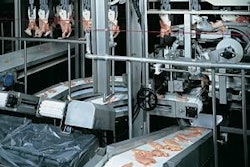In the latest sign that federal inaction on immigration reform is being overtaken by political reality, Alabama has passed legislation that requires employers in the state to participate in the federal E-Verify program. The bill, which awaits the signature of the state’s Governor, also gives the state the authority to revoke an employer’s business license for knowingly hiring illegal immigrants.
Alabama, one of the nation’s leading poultry producing states, “is now the new No. 1 state for immigration enforcement,” according to Kansas Secretary of State Kris Kobach, a leading expert in immigration law.
Among other things, the Alabama legislation would require a person to present proof of citizenship before voting and prohibit an alien not lawfully present in the U.S. from receiving state or local public benefits. Politicians at the federal level have shied away from such policies, as they court the Hispanic vote or attempt to avoid a political backlash.
Piecemeal reform under consideration
If there is any political appetite for addressing immigration reform at the federal level, it is in reform for skilled workers. Under the banner of “Ensuring American Access to the Best Workers,” Republican lawmakers recently indicated a willingness to tackle immigration reform measures relating to skilled worker visas. President Obama recently signaled the same theme, which addresses the labor needs of high-tech companies in places like Silicon Valley, but not those of meat packers and poultry processors and other agricultural producers in rural America. The federal government needs to shoulder its responsibilities in all sectors of the economy.
Misconceptions about wages
Much has been made in public debate about how illegal immigrants are being hired by businesses seeking to achieve lower labor costs. But this is a misconception, at least where poultry processing is concerned. Depending on the U.S. region and local labor markets, processing workers are making competitive wages in the neighborhood of $17 an hour and up. It’s not about undercutting local wages, but more often is a question of whether or not positions can be filled with domestic workers.
Food security at stake
This raises the question of just how high food prices would need to go before Congress and the President act to address these labor needs. Our country needs skilled workers in high-tech industries to keep us competitive in world markets. But it is also vital that our nation have adequate numbers of skilled – and willing – workers in food and agricultural production and processing. It’s time for Congress and the President to stop their political pandering and act responsibly on comprehensive immigration reform.
There is a common denominator in federal immigration enforcement programs and those of Arizona, Georgia and Alabama, which have enacted strict state laws – they all focus on making the employer responsible for verifying workers’ immigration status and holding the employer accountable for violations. It’s time for Congress and the President to shoulder their share of the responsibility in immigration policy.


















